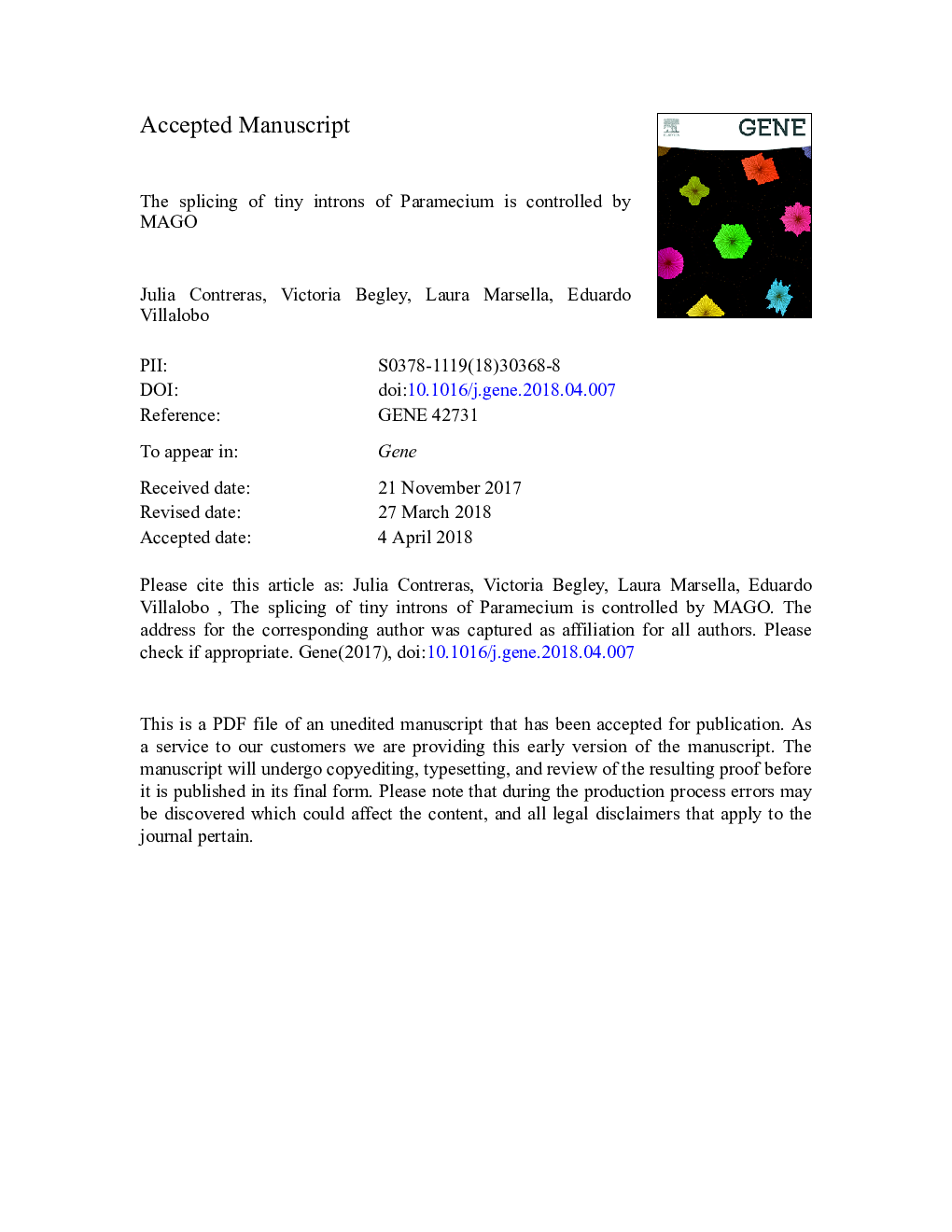| Article ID | Journal | Published Year | Pages | File Type |
|---|---|---|---|---|
| 8645007 | Gene | 2018 | 35 Pages |
Abstract
The exon junction complex (EJC) is a key element of the splicing machinery. The EJC core is composed of eIF4A3, MAGO, Y14 and MLN51. Few accessory proteins, such as CWC22 or UPF3, bind transiently to the EJC. The EJC has been implicated in the control of the splicing of long introns. To ascertain whether the EJC controls the splicing of short introns, we used Paramecium tetraurelia as a model organism, since it has thousands of very tiny introns. To elucidate whether EJC affects intron splicing in P. tetraurelia, we searched for EJC protein-coding genes, and silenced those genes coding for eIF4A3, MAGO and CWC22. We found that P. tetraurelia likely assembles an active EJC with only three of the core proteins, since MLN51 is lacking. Silencing of eIF4A3 or CWC22 genes, but not that of MAGO, caused lethality. Silencing of the MAGO gene caused either an increase, decrease, or no change in intron retention levels of some intron-containing mRNAs used as reporters. We suggest that a fine-tuning expression of EJC genes is required for steady intron removal in P. tetraurelia. Taking into consideration our results and those published by others, we conclude that the EJC controls splicing independently of the intron size.
Keywords
EJCEEoPfamWGDTBENMDPTCdNTPSBasic Local Alignment Search ToolEDTAEthylenediaminetetraacetic acidBlastDeoxynucleotide TriphosphatesTris-Borate-EDTAwhole genome duplicationIntron retentionProtein familiesintervening sequenceMuscleNonsense-mediated decayLuria-BertaniExon junction complexmultiple sequence comparison by log-expectationpolymerase chain reactionPCRexon skippingpolyethylene glycolPEGCiliatepremature termination codon
Related Topics
Life Sciences
Biochemistry, Genetics and Molecular Biology
Genetics
Authors
Julia Contreras, Victoria Begley, Laura Marsella, Eduardo Villalobo,
